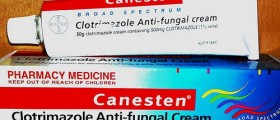
Vulvovaginits is one of the most common problems of the female reproductive system. Vulvovaginits is the infection and irritation of the vagina and vulva. This gynecological condition is commonly accompanied with erythema, excoriation of the skin of the vulva, discharge, burning and pruritis.
Vulvovaginitis Causes
The vulva is the external structure of the female reproductive system. The vulva is comprised of the labia majora, labia minora, clitoris and the vestibule of the vagina. Skin of the vulva is very delicate and can be easily irritated by chemicals found in bubble baths, soaps and clothing. This is the common cause of vulvovaginits in women of all age groups.
An overgrowth of certain types of bacteria in the vagina can also cause infection of the vulva and cause bacterial vaginosis. Another common cause of vulvovaginits is sexually transmitted infection called trichomonas vaginitis infection.
The most common cause of vulvovaginitis in women of all ages is yeast infection caused by the fungus known as Candidia albicans. In fact, it is estimated that approximately 50% of college-aged woman in the United States have one episode of vulvovaginal candidiasis. In this article we will discuss vulvovaginitis caused by Candida albicans.
Vulvovaginal Candidiasis
Vulvovaginitis caused by Candidia albicans infection can be acute, chronic, recurrent or persistent. Vulvovaginal candidiasis occurs due to overgrowth of Candida albicans as a result of prolonged use of antibiotics, birth control pills or steroids.
There are also many factors that increase the risk of vulvovaginal candidiasis. Pregnancy is a significant risk factor for vulvovaginitis. This is because elevated levels of reproductive hormones and increase in the glycogen content in the vaginal epithelium during pregnancy create friendly environments for the fungus. Also, other microorganisms that normally inhibit Candida growth are affected by hormonal changes that occur in pregnancy.
Women who use oral contraceptive pills that contain high dose of estrogen are highly susceptible to vulvovaginal candidiasis. However, the newer birth control pills contain less estrogen thus do not increase the risk of candida vulvovaginitis.
Women with compromised immune system such as those affected by HIV/AIDS and diabetes mellitus are also predisposed to vulvovaginal candidias. A course of antibiotics such as tetracycline, cephalosphorine or amoxiclav is the common risk factor for vulvovaginal candidiasis.
Treatment for Acute Vulvovaginitis
Vaginal candidiasis can be effectively treated with topical antifungal medications. Vaginal tablets are often prescribed too. In case of recurrent candida vulvovaginitis, a doctor may recommend oral antifungal medicines such as fluconazole or itraconazole. Commonly used antifungal agents for treatment of acute vulvovaginitis are nystatin, miconazole, clotrimazole, butoconazole and terconazole.

















Your thoughts on this
Loading...